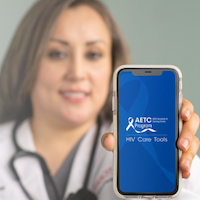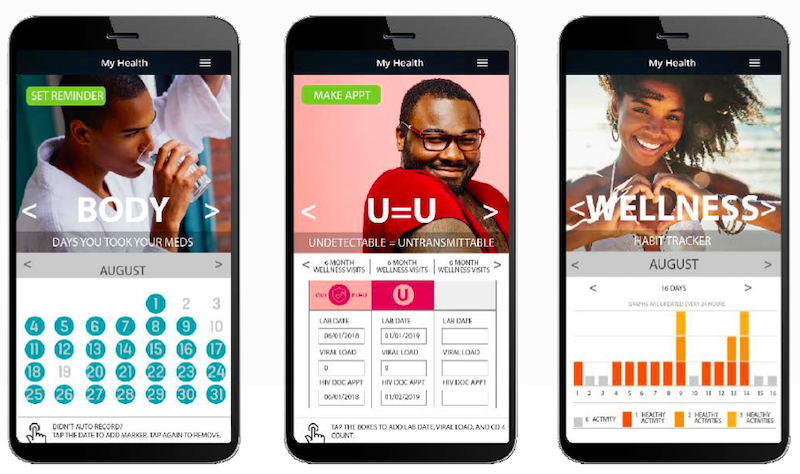
Most of us make use of mobile applications (apps) to navigate, communicate, educate, and of course to entertain. In the mix are apps to support HIV work.
HRSA's Ryan White HIV/AIDS Program (RWHAP) has supported the development of the technology-focused tools to support HIV care engagement and improve HIV outcomes. Below are highlights.
Evidence-Based Technology Tools
A number of evidence-based technology and mobile health tools developed under the RWHAP are housed in the Best Practices Compilation. Each of these tools has demonstrated effectiveness at improving client HIV outcomes. Some have published evidence while others have shown their impact at the local level.
AETC Program: HIV Care Tools
HIV Care Tools is a pocket resource for health care providers to support HIV screening, prevention, and care. Developed by the AETC Program led by the AETC National Coordinating Resource Center, the app features:
- evidence-based guides
- clinical calculators
- phone-based expert consultation
This app was supported by Ending the HIV Epidemic initiative funds, and includes resources to support all four pillars.
AETC and SPNS: HIV/HCV Education
The HIV/HCV Education App was developed by the UT Health San Antonio (South Central) AETC under the Curing Hepatitis C among People of Color Living with HIV SPNS initiative, and is used with their newly diagnosed clients and at community events. There are two apps: one for providers and one for patients.
SPNS Social Media Initiative: Engaging Youth

Various apps were developed by demonstration sites funded under the Use of Social Media to Improve Engagement, Retention, and Health Outcomes along the HIV Care Continuum project, which concluded its investigative work in 2019. That initiative focused on use of social and digital media methods to engage youth with HIV in primary care and supportive services.
Several of these social media tools have been catalogued in the Best Practices Compilation of evidence-based HIV interventions. See also the full collection of the SPNS Social Media Initiative Demonstration Site Resources, with monographs, intervention manuals, and summaries on apps (and text messaging methods).